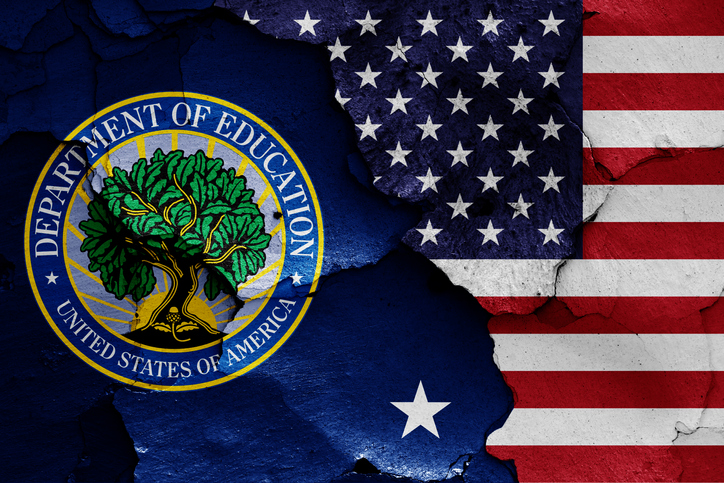Millions of students each year rely on student loans and grants to afford the rising cost of college. This year, that’s about 17 million Americans.
They fill out the Federal Application for Federal Student Aid, known as the FAFSA. But this year, the U.S. Department of Education is very far behind in processing the forms, and it has committed many major errors.
As a result, most colleges have no idea how much financial aid their students and applicants will get. The students don’t know either.
It’s a six-alarm fire. It’s an EF-5 tornado. It’s a 9.5 earthquake. It’s the Kraken.
That’s no exaggeration. FAFSA forms from high school seniors are down about 27%, or about half a million students. It’s unclear whether those students will keep trying or will give up on college.
Some colleges might go under because of the drop in enrollment, with colleges losing not only tuition, but also income from room and board.
Meanwhile, only 7 million FAFSA forms have been transmitted to colleges, but 15% to 30% of them have errors, depending on which recent report one reads.
Observers who have a low opinion of government competence and capacities need to look even lower.
The litany of errors and the timeline of sheer incompetence provided in recent congressional testimony before the House Committee on Education and the Workforce’s Higher Education and Workforce Development Subcommittee is jaw-dropping. Anyone interested in how we got here, and where to place the blame, should read this damning testimony.
All the while, as these financial aid experts note, the Department of Education has provided incomplete and contradictory information day by day, hiding bad news under false headlines of making progress.
A common deadline for students to accept their financial-aid packages and commit to enrollment is May 1. Colleges all over are extending their deadlines. But that’s not enough.
One college president told me:
It’s an actual disaster. And I’m worried it will have a large negative impact for our state. We can’t get our ISIRs [Institutional Student Information Records regarding financial aid eligibility], even for continuing students.
We can’t process summer awards. We can’t even see if new students have submitted their FAFSA for the fall to know if we’ll need additional documents for verification. … It will keep us from being able to award state aid because it’s contingent on federal aid.
The origin of these problems was a law with good intentions. The FAFSA form was long, and then-Sen. Lamar Alexander, R-Tenn. (a former secretary of education), pushed successfully for simplification back in December 2020. It was something of a departing gift to the outgoing senator. But to get it done required a $1.6 billion payout to Historically Black Colleges and Universities—unmerited loan forgiveness to historically black colleges and universities under the HBCU Capital Financing Program.
The Department of Education had years to prepare for the simplified FAFSA. Instead, it launched its own unlawful, unjust, unpopular, expensive, and often regressive schemes for student loan debt transfers from borrowers to taxpayers.
If the Department of Education had prioritized the FAFSA rollout, more students would be seeing more financial aid. Instead, Education Secretary Miguel Cardona’s legacy will be one of a failed agenda that kept losing in court on the one hand and reduced college access on the other.
After the devastating testimony in the subcommittee, Rep. Lloyd Smucker, R-Pa., remarked, “This sure doesn’t make arguing to keep the Department of Education any easier.” Quite right.
Originally published by the Daily Signal. Republished with permission.
For more great content from School Reform News.
For more from The Heartland Institute.
